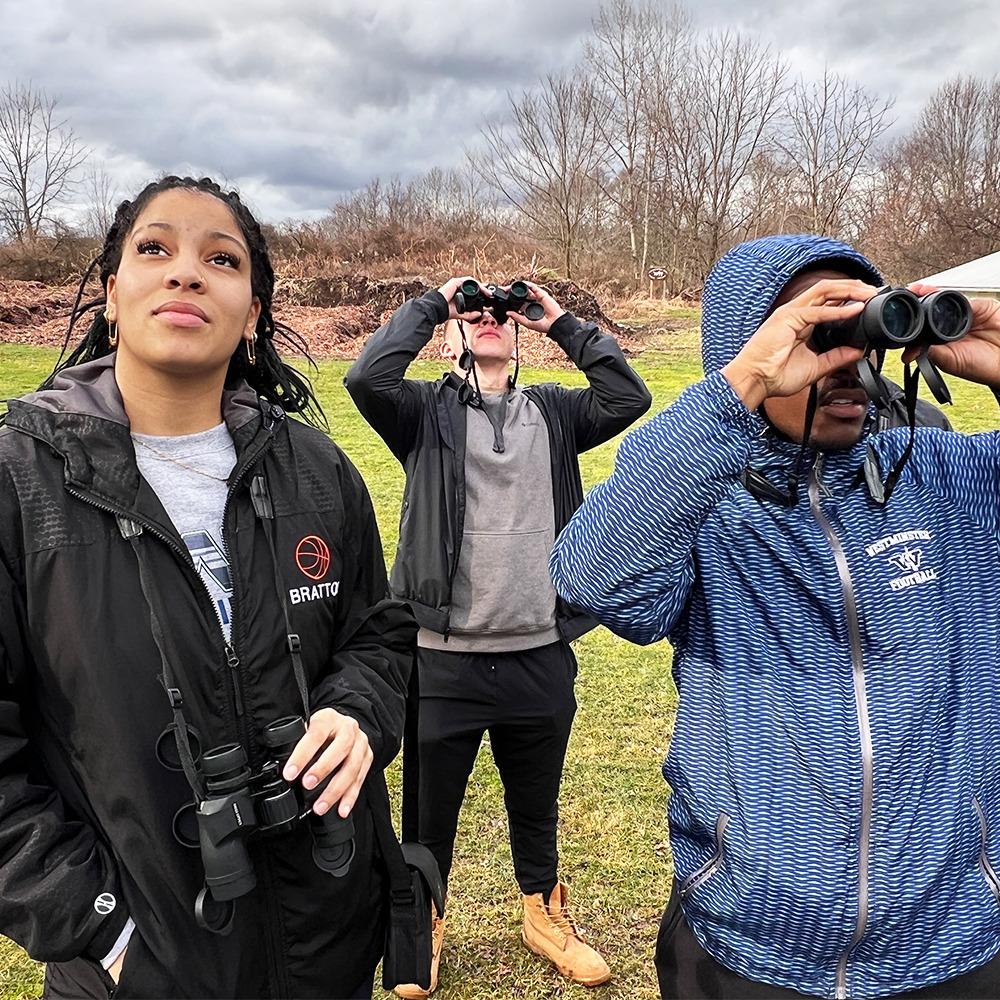SUMMER RESEARCH FELLOW: Taylor Harman ’24
Posted on Wednesday, August 30, 2023
Meet Taylor Harman ’24, one of 10 students selected for a 2023 Summer Research Fellowship. Taylor is a senior neuroscience major from Edinburg, Pa. She and her faculty mentor, Dr. Deanne Buffalari, associate professor of psychology and director of the neuroscience program, spent their summer months working on the project “Does Stimulant History Affect the Anxiety-Like Response to Nicotine in Male Rats?”
Outside of the classroom, Taylor is a Student Government Association senator, president of the Pre-Health Society, vice president of the biological honor society Beta Beta Beta and vice president of Omicron Kappa Sigma, the All-College Honors Program honor society. She serves on the College Appeals Board, the Undergraduate Research and Arts Celebration (URAC) Committee and is an associate member of the Westminster College Board of Trustees. She also belongs to the Neuroscience Club, the Psych Club, the psychology honor society Psi Chi and the junior/senior honor society Pi Sigma Pi.
 Why did you apply for the Summer Research Fellowship?
Why did you apply for the Summer Research Fellowship?
I wanted to use the Summer Research Fellowship to expand on my honors capstone project in a way that would not be feasible timewise during the semester.
Can you briefly describe your research project?
Amphetamine, commonly known as Adderall, is a stimulant frequently prescribed for the treatment of attention-deficit hyperactivity disorder (ADHD). The use of amphetamine prescription has increased 2.5-fold in a decade and is a largely abused drug. ADHD is diagnosed in 10% of children in the U.S. and is more prevalent among boys and younger individuals. Those with ADHD frequently have anxiety and over three-quarters of amphetamine users report anxiety symptoms. Additionally, those with ADHD smoke cigarettes at rates significantly higher than their non-diagnosed peers and experience a greater reinforcing effect from smoking. Animal models can be used to understand biology and pathophysiology, while controlling for variables more easily than clinical models. The current study examined whether individuals repeatedly exposed to amphetamine prescription, like those diagnosed with ADHD, would differ in their anxiety response to nicotine compared to those not taking amphetamine, using rodent subjects. Amphetamine exposure was administered via repeated injection, and nicotine was administered via a single injection prior to testing. Anxiety was measured using a common rodent test of behavior known as the elevated plus maze (EPM). Exploration of open space in the maze was assumed to indicates less anxiety-like behavior, whereas closed spaces in the maze indicates more anxiety-like behavior. Results suggest that both amphetamine and nicotine alone may increase anxiety-like behavior. However, nicotine after a history of amphetamine exposure decreased anxiety-like behavior, compared to amphetamine alone. Though these results were not statistically significant, this study could provide insight into why those prescribed amphetamine are at increased risk of nicotine use, as well as anxiety.
What is your favorite part about research?
I enjoy working with the rats, and getting to test what theories are out there and what questions I have formed from those theories/previous studies. I enjoy seeing all the data come together and getting to see the final product after weeks of conducting experiments.
You collaborated with Dr. Deanne Buffalari. How was that experience and what kind of insight did she offer in your research?
Dr. Buffalari was an amazing advisor, and continually pushed me to be independent in the lab and ask more questions. We have worked together previously—including for capstone in the spring—and I have always enjoyed learning from her. One of the things I struggled with prior to this fellowship was statistical analyses, and she really went out of her way to find resources as well as sit down and explain different tests as well as when to use what test. Overall, she guided me in my research greatly and always gave me a leading point for me to ask my next question.
How has your work as a student researcher shaped your student and future career success?
This work will be tremendously helpful to my capstone project and whatever other research endeavors I may partake in at Westminster. Additionally, as I move on to medical school and eventually a career as a physician, this research gave me insight into how to work independently in a lab, as well as do literature reviews and data analyses.
What’s been your favorite thing about Westminster?
Westminster has provided so many opportunities and connections that are not always possible at other institutions. My favorite thing about Westminster is how close the students and professors are, and how much the professors care about your success.
What are your future plans?
After Westminster, I hope to attend medical school and eventually establish a career as a physician.
To learn more about Westminster’s neuroscience major, visit www.westminster.edu/neuroscience.
Sponsored by the Drinko Center for Undergraduate Research, Summer Research Fellowships at Westminster College allow students to conduct hands-on research and creative projects under the guidance of our experienced faculty mentors.
More Stories



